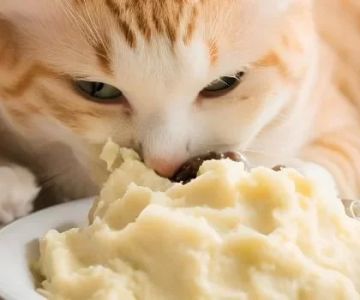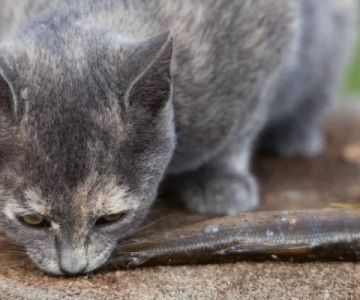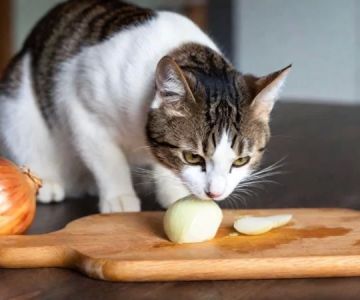- can-cats-eat-yogurt-safely - Understanding if yogurt is safe for cats
- why-some-cats-tolerate-yogurt - How cats process dairy differently
- potential-health-benefits - Nutritional aspects of yogurt for cats
- risks-of-feeding-yogurt-to-cats - Health concerns and lactose intolerance
- how-to-feed-yogurt-safely - Best practices and safe serving methods
- real-owner-experiences - Real cases of cats trying yogurt
- alternatives-to-yogurt-for-cats - Safer treats recommended by veterinarians
- consulting-hidden-brook-veterinary - When to seek professional guidance
1. Can Cats Eat Yogurt Safely?
Many cat owners have asked, “Can cats eat yogurt safely?” The answer isn’t a simple yes or no. While some cats can tolerate small amounts of yogurt without issue, others may experience digestive upset due to lactose intolerance. Yogurt contains probiotics and calcium, which can be beneficial for gut health, but it also includes dairy proteins and sugars that might cause problems for some feline digestive systems.
Generally, a teaspoon of plain, unsweetened yogurt might be safe for most adult cats as an occasional treat — not as a regular part of their diet. Understanding your cat’s unique tolerance level is key before introducing dairy-based foods like yogurt.
2. Why Some Cats Tolerate Yogurt Better Than Others
Most adult cats are naturally lactose intolerant because, as they mature, their bodies produce less lactase — the enzyme required to digest lactose found in dairy products. However, yogurt contains less lactose than milk due to fermentation, which is why some cats may tolerate it better than others.
2.1 The Role of Lactase in Cats
When kittens are young, their bodies produce plenty of lactase to digest their mother’s milk. Once they are weaned, the enzyme production drops dramatically. This explains why adult cats may experience bloating, gas, or diarrhea after consuming dairy.
2.2 The Probiotic Advantage
Yogurt contains live bacterial cultures that can help break down lactose, reducing digestive strain. This makes plain Greek yogurt — which is higher in protein and lower in sugar — a slightly safer choice if you decide to offer a small amount.
3. Potential Health Benefits of Yogurt for Cats
Although yogurt is not essential for a cat’s diet, it may offer minor health benefits when used in moderation. The probiotics in yogurt can support digestive health and help restore gut flora after a course of antibiotics.
3.1 Probiotic Support
Probiotics in yogurt promote a balanced gut microbiome, which can be particularly helpful if your cat has experienced digestive issues or antibiotic treatments. However, probiotic supplements formulated specifically for cats are safer and more effective in most cases.
3.2 Source of Protein and Calcium
Yogurt contains protein and calcium, both of which are important for maintaining healthy bones, teeth, and muscle strength. Still, your cat’s main diet should come from animal-based proteins — yogurt can only serve as a very small supplement.
4. Risks of Feeding Yogurt to Cats
Despite its potential benefits, feeding yogurt to cats carries some risks. Lactose intolerance can lead to digestive distress, including diarrhea, vomiting, or stomach pain. Additionally, many commercial yogurts contain added sugars, artificial flavors, or xylitol — a sweetener that is toxic to cats.
4.1 Watch Out for Added Ingredients
Always check the ingredient list before giving yogurt to your cat. Avoid flavored or low-fat varieties, as these often contain additives that can harm your cat’s health. Stick to plain, unsweetened Greek yogurt if you decide to let your cat try it.
4.2 Portion Control Matters
Even if your cat enjoys yogurt, moderation is crucial. Too much can upset the stomach or contribute to weight gain. A teaspoon once or twice a week is more than enough for most cats.
5. How to Feed Yogurt Safely to Your Cat
If you’re considering letting your cat try yogurt, here’s a safe way to introduce it:
5.1 Step-by-Step Introduction
Start by offering a small lick of plain yogurt on your fingertip. Observe your cat’s reaction for the next 12 to 24 hours. If there are no signs of digestive upset, you can occasionally offer a small spoonful as a treat.
5.2 Choose the Right Type of Yogurt
The best option is unsweetened, plain Greek yogurt. It has lower lactose content and higher protein levels. Avoid yogurts with fruit, flavoring, or artificial sweeteners, as these can be harmful to cats.
6. Real Owner Experiences – Cats and Yogurt
Many cat owners have shared mixed experiences when it comes to feeding yogurt. For instance, one pet owner reported that her cat enjoyed a small spoon of Greek yogurt every few weeks without issue, while another noticed her cat developed loose stools after trying vanilla yogurt. These examples highlight how individual tolerance levels vary widely among cats.
Another story shared online involved a rescue kitten that was given probiotic yogurt to aid digestion after antibiotic treatment. Under a vet’s supervision, it helped restore gut balance and improved appetite — proof that, when used responsibly, yogurt can have some short-term benefits.
7. Alternatives to Yogurt for Cats
If your cat reacts poorly to yogurt or you’d rather avoid dairy, there are safe and healthy alternatives. Veterinarians often recommend specially formulated probiotic supplements for cats, which provide digestive support without the risk of lactose sensitivity.
7.1 Lactose-Free Treats
There are also lactose-free cat treats available that offer similar textures and flavors to yogurt. These are safer for daily use and tailored to feline nutritional needs.
7.2 Probiotic Powders
Probiotic powders designed for cats can be mixed directly into their regular food. This method delivers beneficial bacteria without introducing unnecessary dairy or sugars.
8. Consulting Hidden Brook Veterinary – When to Seek Professional Guidance
If you’re unsure whether yogurt is safe for your cat, it’s best to consult the professionals at Hidden Brook Veterinary. Their team can assess your cat’s dietary needs, digestive health, and any allergies before making personalized recommendations. Whether you’re exploring probiotic options or addressing digestive issues, their expert advice ensures your cat stays healthy and happy.
Remember, while yogurt can occasionally be safe, it’s not a substitute for a balanced feline diet. Always prioritize your cat’s long-term health and nutrition with guidance from trusted veterinary professionals.










